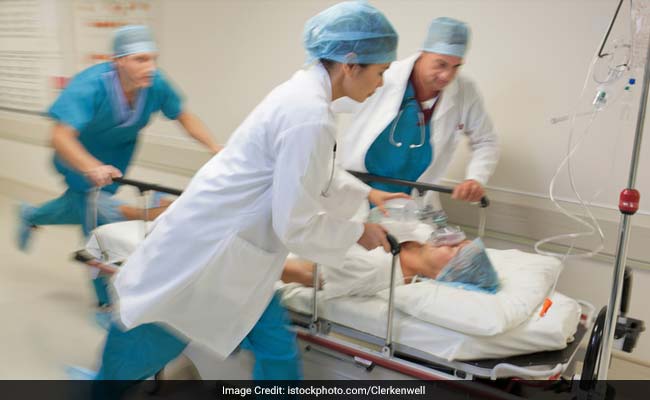The Lok Nayak hospital in the capital has seen a heavy turnout of patients for sex-change surgeries as compared to past years.

People with a conflicting sexual orientation are turning up in heavy numbers for sex-change surgery
HIGHLIGHTS
- The hospitals are witnessing a heavy turnout for sex-change surgery
- There are many risks involved in the opeartion
- Person undergoing the surgery cannot have children in future
In a surprising trend, hospitals in Delhi are witnessing a never-seen-before show of patents for sex-change surgeries. According to the doctors at the Delhi's Lok Nayak Hospital, the number may not seem large for a surgical procedure but compared to the statistics in the past, it is nothing short of a surge. The growing number of sex-change operations and rising demand for it alludes to the breakdown of old taboos. There are a lot of people who have begin to acknowledge their gender orientation and are turning in huge numbers at different medical centres in the city for surgeries.
The recent upsurge for sex-change operations has took the doctors to surprise. According to Dr P S Bhandari, who heads the hospital's plastic surgery division,"Ten years ago, we would not get one or two such cases in a year. But now, we are getting three to four requests every month."
Gender Re-assignment Surgery
Sex-change operations are quite complicated and can cost a person's life if not appropriately treated. Converting a male to a female anatomy involves removal of the penis, reshaping genital tissue to make them appear more feminine, and constructing a vagina. As per the health experts, a vagina can be easily formed from a skin graft or an isolated loop of intestine. Following the surgery, female hormones will re-shape the body parts and stimulate the growth of satisfactory benefits.
Female to male surgery, on the other hand, usually achieves lesser success due to the difficulty of creating a functioning penis from the much smaller clitoral tissue available in the female genitals. According to a study in Singapore, a third of the persons would not undergo the surgery again. Or do so in some city abroad, through medical tourism. Apart from the genital organs, the breasts need to be surgically altered and reduced for a more male appearance.
Risks Involved
Taking account of the risks involved in the surgery, there are many who are hesitant to undergo surgeries. But with advancing technologies and awareness, many others are knocking the doors of doctors to get their surgeries done. "With meticulous planning, expertise, the advancement of anesthesia, and an overall understanding of the subject, the risk is practically zero," says the head doctor Dr Kaushik at the Olmec Cosmetic Surgery Centre.
And if there are risks, Dr Gupta says it's with hormonal treatment, "If a person takes estrogen for a long time, there is a risk of the blood becoming thicker, and chances of thromboembolism for example, increases. Just like with taking contraceptive pills." Since the genitals are unnaturally constructed, the people who undergo sex-change surgeries cannot have children.
Increasing acceptance of genital change operations, social support and the availability of sex-change surgeries have encouraged people to demand corrective measures.
A patient requires complete psychiatric evaluation before undergoing such an operation. Dr Sameer Malhotra, who heads the department of mental health and behavioural sciences at Max Hospital Saket, said he, too, has observed a rise in demand for such surgeries. A sex-change surgery is quite expensive at private hospitals, and so many patients queue up at public hospitals, such as Lok Nayak.
DoctorNDTV is the one stop site for all your health needs providing the most credible health information, health news and tips with expert advice on healthy living, diet plans, informative videos etc. You can get the most relevant and accurate info you need about health problems like diabetes, cancer, pregnancy, HIV and AIDS, weight loss and many other lifestyle diseases. We have a panel of over 350 experts who help us develop content by giving their valuable inputs and bringing to us the latest in the world of healthcare.












